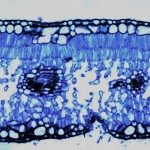Lien vers Pubmed [PMID] – 27765293
Lancet Glob Health 2016 Nov;4(11):e856-e863
BACKGROUND: Oral cholera vaccines represent a new effective tool to fight cholera and are licensed as two-dose regimens with 2-4 weeks between doses. Evidence from previous studies suggests that a single dose of oral cholera vaccine might provide substantial direct protection against cholera. During a cholera outbreak in May, 2015, in Juba, South Sudan, the Ministry of Health, Médecins Sans Frontières, and partners engaged in the first field deployment of a single dose of oral cholera vaccine to enhance the outbreak response. We did a vaccine effectiveness study in conjunction with this large public health intervention.
METHODS: We did a case-cohort study, combining information on the vaccination status and disease outcomes from a random cohort recruited from throughout the city of Juba with that from all the cases detected. Eligible cases were those aged 1 year or older on the first day of the vaccination campaign who sought care for diarrhoea at all three cholera treatment centres and seven rehydration posts throughout Juba. Confirmed cases were suspected cases who tested positive to PCR for Vibrio cholerae O1. We estimated the short-term protection (direct and indirect) conferred by one dose of cholera vaccine (Shanchol, Shantha Biotechnics, Hyderabad, India).
FINDINGS: Between Aug 9, 2015, and Sept 29, 2015, we enrolled 87 individuals with suspected cholera, and an 898-person cohort from throughout Juba. Of the 87 individuals with suspected cholera, 34 were classified as cholera positive, 52 as cholera negative, and one had indeterminate results. Of the 858 cohort members who completed a follow-up visit, none developed clinical cholera during follow-up. The unadjusted single-dose vaccine effectiveness was 80·2% (95% CI 61·5-100·0) and after adjusting for potential confounders was 87·3% (70·2-100·0).
INTERPRETATION: One dose of Shanchol was effective in preventing medically attended cholera in this study. These results support the use of a single-dose strategy in outbreaks in similar epidemiological settings.
FUNDING: Médecins Sans Frontières.


